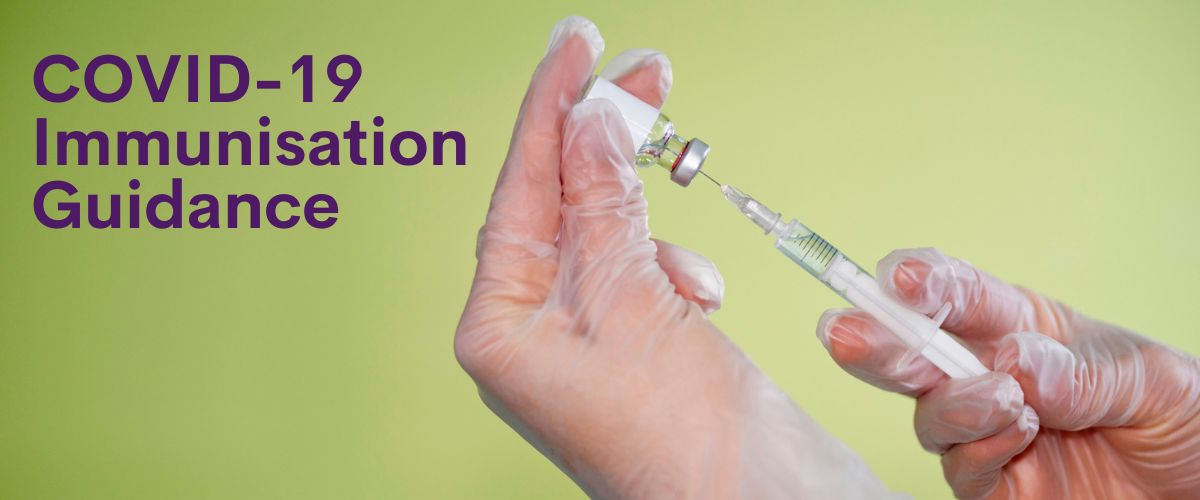
CORONAVIRUS AND HUMAN RIGHTS FAQ
FACEMASKS, VACCINES, AND VACCINE PASSES
Read the FAQ document produced by the CAJ here.
The Department of Health and HSC Trusts are undertaking programmes to deliver vaccines against COVID-19.
The vaccination programme for residents and workers in care homes began in December. Health and social care workers are one of the top priority groups and should soon all be offered access to the vaccine.
Guidance has been sent to UNISON Health branches about the vaccination programme. To find out more information and have questions answered about the vaccination programme in your work place speak to your local UNISON branch.
We’ll provide here some key information about the vaccine programme and links to resources where you can find further information. Check back regularly for any further updates.
Why is the vaccine important?
A safe, effective vaccine would offer protection to health and care workers who may be exposed to COVID-19 in the course of their work or daily lives.
It is important that the roll-out of this vaccination is undertaken collaboratively with the safety, wellbeing and trust of staff as the main priority. UNISON is engaging regularly with the Department of Health, Public Health Agency and HSC Trusts on this basis.
Who can receive the vaccines?
The Joint Committee on Vaccination and Immunisation (JCVI) are the body which advise the UK Government on which vaccines the UK should use and provide advice on who should be offered the vaccination first.
JCVI guidance has identified the first priority groups to be care home residents and staff, health and social care workers and people aged over 80, who will be offered the vaccine first. Social care workers working for private sector companies, such as those providing domiciliary care, are part of this first priority group, following representations made by UNISON (https://www.unison-ni.org.uk/unison-welcomes-vaccine-announcement-domiciliary-care-workers)
UNISON is making the case that other groups of frontline workers, such as education workers, should also be prioritised for vaccination.
It is expected that all adults aged 18 and over will be offered the vaccine in due course.
Always discuss your eligibility for any vaccination with those offering it and check the most up to date guidance.
Our priorities for the COVID-19 vaccination programme
Informed choice
UNISON has strongly advocated for health and care staff to be given priority access to the vaccination. However, as with the flu vaccination, no health or care worker should be forced to receive the COVID-19 immunisation.
Our priority is to ensure that employers make the vaccine easily accessible to all staff who are eligible and that they provide them with the full information they need to make an informed decision.
We have secured commitments that there will be no negative implications for staff who refuse the vaccine. If staff choose not to have the vaccination, their employment will not be at risk. In the event that your role involves working with those who are particularly at risk, your Line Manger may discuss this with you and revisit the COVID-19 Risk assessment for this work and explore options available if this is necessary. This may include short term or further redeployment which would be in line with a review of relevant COVID-19 risk assessment. Your UNISON branch will offer you support and advice in these circumstances.
We would encourage all our members to be cautious in relation to the information you share regarding vaccinations. Sharing your personal views can be acceptable but as HSC employees you have a responsibility not to share unverified information which potentially misinforms the public. Registrants have a particular responsibility on this within their professional codes.
Safety and protection
The roll-out of any vaccination against COVID-19 is subject to approval by the UK Medicines and Healthcare Regulatory Agency (MHRA). The MHRA has given reassurances that the safety, quality and efficacy of any vaccine are thoroughly scientifically assessed before approval is given for use.
We are insisting that the same rigour is applied in the roll-out of the vaccine. Those administering it must be trained and certified as competent. Appropriate supervision and guidance must be available to them. Robust procedures for the supply and safe storage of the vaccination must be in place.
For further information
- Questions and answers for HSC staff - Public Health Agency
- Covid-19 Vaccination – Protection for Health and Social Care Workers leaflet (https://www.publichealth.hscni.net/sites/default/files/2021-01/Job%201%20Covid-19_Healthcare_workers_leaflet_A5_MHRA_04_12_21.pdf)
- COVID-19 Vaccination Programme questions and answers | HSC Public Health Agency
- More in-depth information is being provided to UNISON Health branches. If you have questions or concerns about the plan in your area contact your local branch www.unison-ni.org.uk/branches
- Continue checking our website and social media channels regularly for further up to date information



